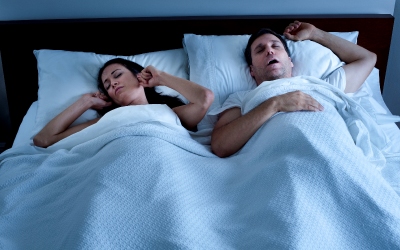What Every Diabetic Ought to Know About Sleep Apnoea
Diabetics are more likely to suffer from sleep apnoea, according to a major new study. The wellness and wellbeing of those who suffer from diabetes is under threat in a number of ways, due to the effects on the body from the inability to control blood sugar levels effectively, and sleep apnoea is just another way that diabetics are thought to be at risk.
Sleep apnoea is a worrying and distressing condition where a person stops breathing for a period of time (or, sometimes, several periods of time) during the night. As well as being very upsetting for the sufferer (and for their loved ones, who may be extremely frightened to witness this), the condition can lead to a very disrupted night of sleep, and, consequently, to fatigue the next day. It is also linked to a huge variety of other health conditions, such as heart disease and depression. The condition can be diagnosed in a specialist sleep clinic, where participants undergo a full night (or sometimes more than one night) of constant monitoring.
People who have hypertension or type 2 diabetes are now known to be more at risk from having obstructive sleep apnoea than those without the condition, and should ensure that they discuss their risk from the condition with their healthcare provider. Effective diagnosis and treatment can significantly improve the health of sufferers, with improved insulin sensitivity, cholesterol and blood pressure.
Treating sleep apnoea can be a very important part of diabetes management as it helps to improve glucose levels (as well as the aforementioned insulin sensitivity) in diabetics, and can also reduce their risk of succumbing to diabetes-related conditions.
Treatment for sleep apnoea is usually in the form of a CPAP, which blows air into your nose and mouth via a mask while you sleep.

Comments are closed.